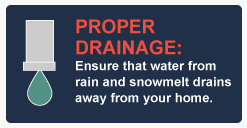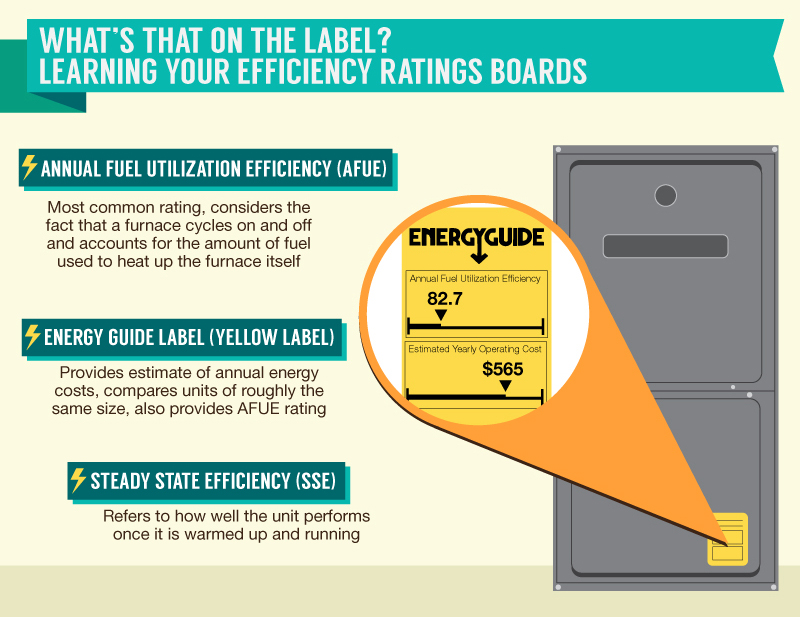Protect Your HVAC System from Winter Elements
The worst time of year for your heating system to go on the fritz is the winter. Just as wind, snow, and ice cause long and short term damage to your home, the same could cause costly damage to an HVAC unit. Portland residents who take the simple yet necessary steps to protect and maintain their HVAC system during the coldest times of the year will maximize the unit’s life span, requiring less frequent repairs that can help save on monthly usage costs.
The Effects of Winter Weather on an HVAC in Portland
Gas Furnaces and Boilers
Some of the most vulnerable parts of a boiler and gas furnace are the unprotected exhaust and intake pipes that are located in the roof of your home or on a sidewall. If ice, snow, or frost melts and re-freezes in the exhaust or intake pipe, the system might shut down.
These types of heating units also have valves and controls that are vulnerable to water damage. Exposure to water can lead to hidden corrosion within the system and create reliability issues. In more severe cases, water damage could cause the appliance to catch fire. Always have an HVAC Portland professional inspect a unit if you suspect any water damage.
Heat Pumps
Rain or melting snow that drips from a roof or gutter system into a heat pump is particularly problematic if the water freezes on the coil fins and fan blades. This could cause an imbalance within the unit itself. When this occurs, you might notice unusual vibrations and noises coming from the unit or refrigeration leaks. In addition, fins could burst, the circuitry in the system may short, or components might burn-out.
In general, frost accumulating on heat pump coils is of no concern because the unit uses the refrigerant within it to absorb the change in temperature. When the refrigerant absorbs heat, the excess moisture sometimes builds up on the unit’s processing coils and freezes if the outside temperatures are cold enough.
A heat pump, however, should never become encased in ice because this will trigger the unit’s emergency shut-off. If you notice ice forming around the unit it’s necessary to address the issue immediately. This could indicate a problem with the unit’s automatic defrost setting. When you notice an abnormal buildup of ice, use a broom to remove any snow and debris that accumulated on and around the unit to promote airflow. Do not try to melt the ice using water or picks. If you don’t notice an improvement after 30 minutes, call a professional. If the accumulation of ice is large, call a professional right away. Click here for additional heat pump resources.
Winter Maintenance for Portland HVAC Systems
- Debris removal: Keep the area on and around your heating unit clear and free of snow, leaves, pine needles, and overgrown vegetation.
- Cover the A/C: As soon as the weather feels chilly, place a cover over the A/C unit to protect it from debris. If you have a portable unit, place it in a dry, sheltered area.
- Gutters: Ensure that the gutters don’t drip onto the HVAC system.
Preventing Winter Weather Damage to HVAC Units
- Air filters: Regularly change the air filters in your heating and cooling units as recommended per the manufacturer. Since the heating system works harder in the winter, you might need to replace the filters more often.
- HVAC placement: Install an HVAC system on a platform instead of directly on the ground. The unit should be at least 18 inches away from your home.

- Proper drainage: Ensure that water from rain and snowmelt drains away from your home.
- Wind protection: Create a wind barrier at least 18 inches away from the HVAC unit. You can utilize shrubs or a fence to provide additional protection.
- Protect components: If you have a gas furnace or boiler, protect the exhaust and intake pipes from rain and snow.
- Coils and fins: Regularly inspect the coils and fins on your HVAC unit to ensure they are in good shape. Clean these components at least once a year.
- Professional maintenance: Hire an HVAC professional to inspect and maintain the heating system toward the end of summer. Similarly, hire a professional to inspect your cooling system in the spring.
While the Portland area generally only experiences a couple days of snow in the winter, those few days could result in costly HVAC repairs if you don’t take the necessary precautions. If you suspect that your heating system needs repair, don’t wait until you’re left in the cold. Call your local Portland HVAC experts, AAA Heating & Cooling, right away.
Photo by State Farm via CC License
Shopping for an energy efficient HVAC system is a large investment in your home. As building envelopes become tighter and insulation improves the HVAC system that your home required 20 years ago might not fulfill the same needs today. This is especially true if your house received several energy-saving improvements. Asking the right questions about the products you are considering gives you the information that you need to make an educated decision about the best HVAC system for your home, needs, and budget
What to Ask When Shopping for an Energy Efficient HVAC System
What is the SEER number and HSPF rating?
The Seasonal Energy Efficient Ratio (SEER) on a cooling unit tells you how efficient it is. The Heating Season Performance Factor (HFSP) tells you about the efficiency of a heat pump. Systems with an ENERGY STAR label have a SEER of at least 14.5 and an HSPF of at least 8.2 (the higher the number, the greater the efficiency).
What HVAC size do I need?
An energy efficient HVAC will actually waste energy if it is too big or too small. Instead of just using the size of an existing system, a contractor should also take into account additions and energy-saving upgrades that you’ve invested in your home. System size also matters if you plan to add multiple heating and cooling zones in your home.
What is the best type of HVAC unit for my home?
Heating and cooling units are available as natural gas-powered systems, all-electric units, heat pumps, combination systems, ductless mini splits, and radiant heat systems. Review your comfort standards and heating and cooling needs with a licensed HVAC contractor to learn about the advantages and disadvantages regarding the different types of HVAC units available for your home. Find out more about the energy and cost advantages of ductless systems here.

Can you provide me with a free, no-obligation quote?
A good HVAC contractor provides an accurate estimate for an HVAC system, its installation, labor costs, and the options available in writing. This estimate should include the price of parts, energy efficiency-related information and warranty specifications.
What rebates and tax breaks are available for energy-saving HVAC systems?
Investigate local, state, and federal tax laws and energy departments to learn if a system is available for a rebate or tax incentive. In addition, see which manufacturers are offering their own rebates to maximize your savings. A good HVAC contractor will have this information for you.
What are the lifetime operating costs?
When shopping for an HVAC system, look beyond the price and installation costs. Estimate the annual energy costs for your area. Learn how much it costs to maintain the system and if it needs specialized parts that might cost more than others.
What type of air filters does the HVAC unit use?
Some types of HVAC units use specific filters, while others may accommodate different types, such as disposable, washable, or HEPA filters. Learn how often you need to replace or clean the filters, too.
Do I need to replace all of the HVAC equipment?
For an HVAC system to work optimally, it must match the ductwork. Otherwise, you’ll experience energy losses. This could mean finding a heating and cooling system that matches the equipment in your home or replacing the equipment so it matches the system you choose. You may also need a new thermostat.
What does the warranty cover and how long does the coverage last?
Not all warranties are the same. Some offer longer terms and cover different aspects of the HVAC unit. When investigating warranties, also remember to educate yourself on what actions will void them. Curious about ratings? This is what those SEER ratings actually mean.
Does the HVAC unit have moisture control elements?
A home that’s too dry might make you feel uncomfortable, prolong the life of certain viruses, and can cause wood floors and furniture to crack from the lack of moisture. Too much humidity leads to mold and bacterial growth and can make a space feel too stuffy. Moisture control elements in an HVAC unit keep you comfortable and healthy while preventing unnecessary damage to your belongings.
Shopping for an energy efficient HVAC does not have to be confusing or overwhelming. When you work with a reputable contractor like AAA you’ll receive personalized assistance for finding the best energy-efficient products for your home and needs. Contact AAA today to schedule a free consultation. Learn more about our residential services here.
Photo by p.Gordon via CC License
Heat pump installation is on the rise due to the money and energy savings a heat pump provides. A heat pump is nearly four times more efficient than an oil furnace and can save a household anywhere from 20% – 70% in monthly utility costs. Possibly the best part of installing a heat pump is having an all-in-one heating and cooling system. In the winter, the heat pumps pushes warm air into the home while pulling it out in the summer. Portlanders are particularly good candidates for heat pump ownership, as the temperate climate and low variance in average temperature allow for maximum energy and cost savings. Here at AAA Heating & Cooling, our team believes that heat pumps are the right choice for Portland homeowners. Call us for details about installing a heat pump in your home.
To view the full size infographic, click on the image, then the magnifying glass.
